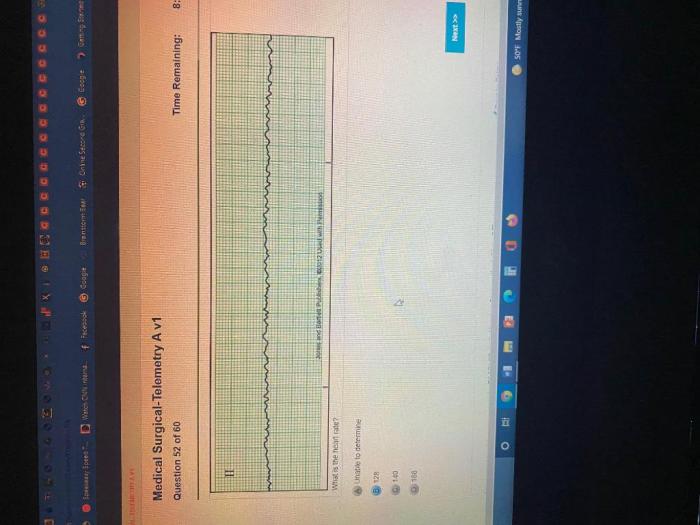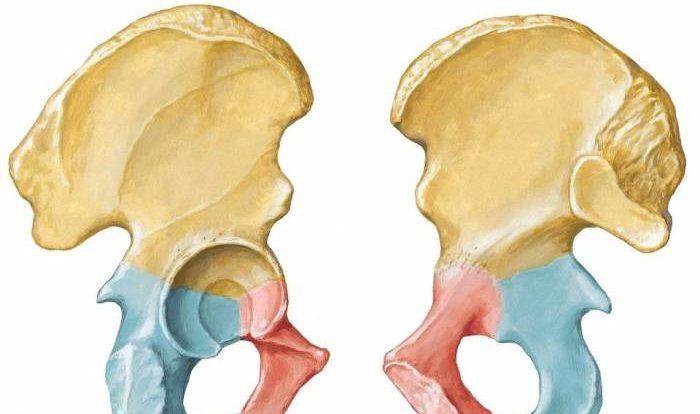As Medical Surgical-Telemetry RN A Relias 2023 takes center stage, this opening passage beckons readers into a world crafted with good knowledge, ensuring a reading experience that is both absorbing and distinctly original.
Medical Surgical-Telemetry RN A Relias 2023 delves into the dynamic realm of nursing, exploring the multifaceted role of RNs in providing comprehensive care to patients in medical-surgical settings. Through an in-depth examination of their responsibilities, skills, and career trajectory, this comprehensive guide offers a roadmap for success in this specialized field.
Medical-Surgical Telemetry RN Job Description

Medical-Surgical Telemetry RNs are responsible for providing comprehensive care to patients in medical-surgical units equipped with telemetry monitoring systems. They assess, monitor, and treat patients with a variety of medical conditions, including cardiovascular, pulmonary, and neurological disorders.
To qualify for this role, RNs must possess a valid RN license, BLS and ACLS certification, and experience in a medical-surgical setting. They should also have strong assessment, monitoring, and critical thinking skills, as well as the ability to work independently and as part of a team.
Medical-Surgical Telemetry RNs typically work in shifts in a hospital setting. They may work on weekdays, weekends, and holidays.
Scope of Practice for Medical-Surgical Telemetry RNs
Medical-Surgical Telemetry RNs have a broad scope of practice that includes:
- Assessing and monitoring patients’ vital signs, including heart rate, blood pressure, respiratory rate, and oxygen saturation
- Interpreting telemetry data to identify and respond to changes in patients’ conditions
- Administering medications and other treatments as prescribed by physicians
- Educating patients and their families about their conditions and treatments
- Collaborating with other healthcare professionals to provide comprehensive care to patients
Education and Training for Medical-Surgical Telemetry RNs
To become a Medical-Surgical Telemetry RN, individuals must complete an accredited nursing program and obtain an RN license. They must also complete a telemetry certification program, which typically includes both didactic and clinical components.
Once certified, Medical-Surgical Telemetry RNs are required to maintain their certification through continuing education and professional development activities.
Career Advancement Opportunities for Medical-Surgical Telemetry RNs

Medical-Surgical Telemetry RNs have a variety of career advancement opportunities, including:
- Promotion to leadership positions, such as nurse manager or clinical supervisor
- Specialization in a specific area of nursing, such as cardiovascular or critical care
- Teaching or research in the field of nursing
Salary and Benefits for Medical-Surgical Telemetry RNs
The salary and benefits for Medical-Surgical Telemetry RNs vary depending on factors such as experience, location, and employer. According to the U.S. Bureau of Labor Statistics, the median annual salary for RNs in 2021 was $77,600.
In addition to salary, Medical-Surgical Telemetry RNs may also receive benefits such as health insurance, paid time off, and retirement benefits.
Role of Medical-Surgical Telemetry RNs in Patient Care: Medical Surgical-telemetry Rn A Relias 2023

Medical-Surgical Telemetry RNs play a vital role in providing comprehensive care to patients in medical-surgical units. They are responsible for assessing, monitoring, and treating patients with a variety of medical conditions. Medical-Surgical Telemetry RNs use a variety of technology and equipment to provide patient care, including telemetry monitors, IV pumps, and ventilators.
Medical-Surgical Telemetry RNs collaborate with other healthcare professionals, such as physicians, pharmacists, and respiratory therapists, to ensure that patients receive the best possible care.
Question Bank
What are the primary responsibilities of a Medical Surgical-Telemetry RN?
Medical Surgical-Telemetry RNs are responsible for providing comprehensive care to patients in medical-surgical units, including assessment, monitoring, and treatment. They collaborate with physicians and other healthcare professionals to ensure optimal patient outcomes.
What are the educational requirements for becoming a Medical Surgical-Telemetry RN?
To become a Medical Surgical-Telemetry RN, individuals typically need an Associate’s Degree in Nursing (ADN) or a Bachelor’s Degree in Nursing (BSN). Additionally, they must pass the National Council Licensure Examination (NCLEX-RN) and obtain certification in telemetry nursing.
What are the career advancement opportunities for Medical Surgical-Telemetry RNs?
Medical Surgical-Telemetry RNs can advance their careers by pursuing leadership positions, specializing in specific areas of nursing, or obtaining advanced degrees. They may also transition into roles in education, research, or administration.
